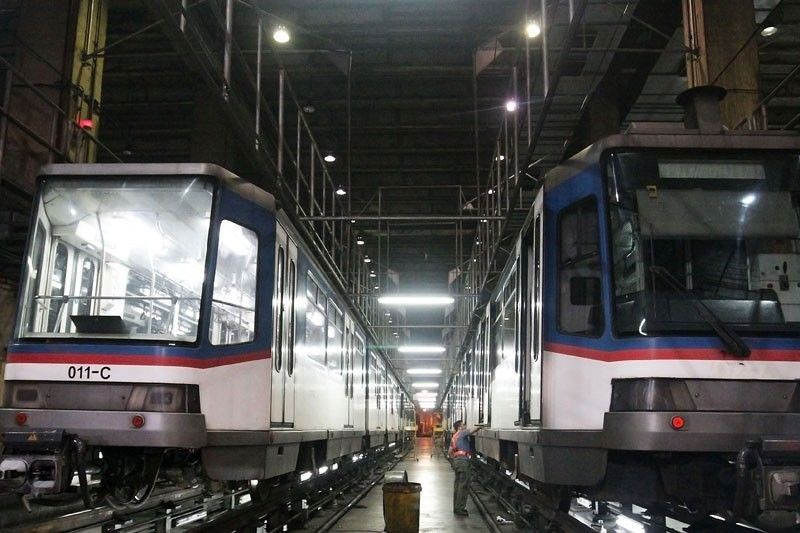Gov't to restart infrastructure work amid lengthened Luzon quarantine

MANILA, Philippines — Public rail infrastructures have secured approval to restart “limited works” during the Luzon-wide community quarantine next week, providing a necessary boost to lagging economic activity as the Duterte government vowed to proceed with its infrastructure agenda.
The approval, Cabinet Secretary Karlo Nograles said, was granted by the Inter-agency Task Force for the Management of Emerging Infectious Diseases overseeing the government’s response to the coronavirus disease-2019 (COVID-19) outbreak.
Sought for details, Transport Assistant Secretary Goddes Hope Libiran said in a text message 13 rail projects “may begin at different times next week,” led by the aid-funded P227-billion Metro Manila Subway Project.
The rehabilitation and upgrade of existing Light Rail Transit (LRT) Lines 1 and 2 will also resume, including that which extends to Cavite. The construction of a common station for the LRT lines and Metro Rail Transit 3 in Quezon City was also covered by the approval.
Similarly, resumption of work on the Japan-funded rehabilitation of MRT-3 running along EDSA, as well as the MRT-7, financed by San Miguel Corp., along Commonwealth Avenue, was also green-lighted.
Outside Metro Manila, groundwork can also proceed for the P82.9-billion Mindanao Railway project that would cross Davao, where a lockdown just started on Saturday. The Subic-Clark Railway, and components of the 148-kilometer North-South Commuter Railway traversing Clark to Calamba in Laguna, will also continue.
IATF’s quarantine exemption on infrastructure work came just as the government extended the Luzon-wide lockdown to April 30 from its original expiration on April 12. Economic managers wanted the “Build, Build, Build” infrastructure program to continue, as they bank on a capital outlay boost to save the economy from an expected downturn due to the epidemic.
While infrastructure building will resume, Nograles said it would do so under conditions of “limited mobilization” and skeletal workforce, a mechanism that allows social distancing to be practiced to avoid the virus contagion.
Contractors are also required to provide accommodations to their workers near or on site, while regular disinfection of work areas and health monitoring for their personnel should also be undertaken.
Sought for comment, Ibarra Paulino, executive director of the Philippine Constructors Association, an industry group that claims to corner around 80% of state projects, supported the government’s decision to proceed with its building program.
“This is the right time for them to do maintenance and improvement of the rails, (but) protocols on safety of workers [such as] safe distancing…should strictly be followed,” Paulino told Philstar.com in a phone interview.
He went as far as suggesting that the Department of Public Works and Highways (DPWH) do the same for some road projects while most people are indoors, such as the long-overdue rehabilitation of EDSA thoroughfare. DPWH officials could not be reached for comment.
“On the part of government, I think they need to move too because a lot of people are affected without livelihoods and government workers who don’t have jobs. So we think that’s one thing they can do for now,” Paulino said.
- Latest
- Trending
























